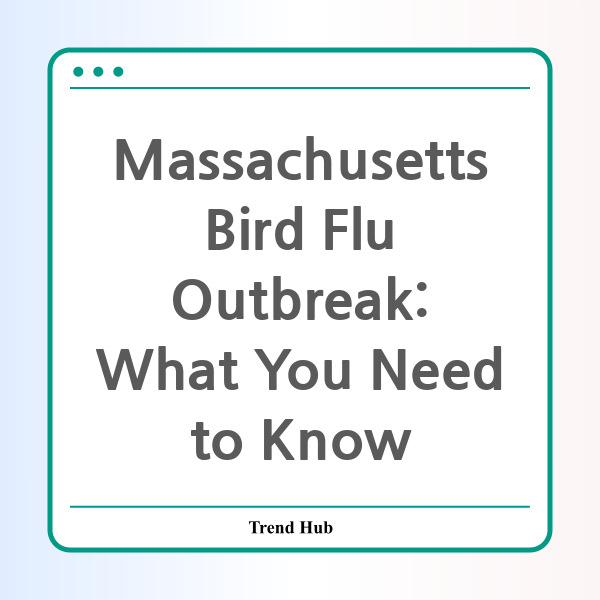* This website participates in the Amazon Affiliate Program and earns from qualifying purchases.

As news breaks of a possible bird flu outbreak in Massachusetts, local farmers are feeling the tremors of this highly contagious disease. The H5N1 strain of avian influenza has raised alarms, particularly after dozens of wild birds were found dead across cities like Boston, Amherst, and Plymouth. Understanding the implications of this outbreak is crucial, especially for those involved in poultry farming and for public health.
The Massachusetts Department of Public Health is reporting increased cases of bird flu, primarily transmitted through the feces of infected birds. The recent cold weather has created conditions where wild birds, including geese and swans, gather at limited water sources, thus facilitating the spread of the virus. With its ability to decimate poultry populations, the stakes are high, especially for local farmers who rely on healthy flocks for their livelihoods.
Anne Diemand Bucci, co-owner of Diemand Farm, expresses the deep concern shared by many farmers: "It would be devastating." Currently, her farm, which has about 2,000 egg-laying hens, is implementing heightened biosecurity measures. This includes mandatory boot sanitization procedures before entering the chicken coop and strict restrictions on visitors. Such precautions aim to prevent even the slightest risk of introducing the virus onto their farm.
Despite the low risk of human infection, as the H5N1 strain rarely infects people, the consequences of a bird flu outbreak for farmers can lead to economic turmoil, job losses, and further supply disruptions of eggs and poultry products. The strain has already resulted in significant price hikes and a nationwide shortage, leaving consumers to face inflated prices at stores.
Preventative measures are being adopted widely. The Wright-Locke Farm in Winchester has halted children from tending the chickens in its preschool program, showcasing the seriousness of the situation. At the Natick Community Organic Farm, staff took proactive actions, limiting public engagement with their animals and keeping chickens indoors to reduce contact with potential carriers of the virus. This rolling approach of adapting to emerging threats is vital for all farm operations.
In light of this, education on biosecurity remains a vital aspect of prevention. Ashley Randle, commissioner of the Massachusetts Department of Agriculture, emphasizes that working closely with flock owners can significantly mitigate risks. Farms are encouraged to report any unusual mortality among their birds so that swift action can be taken.
Researchers continue to seek insights into the behavior of the virus, aiming to develop potential vaccines and treatments. As the avian flu strain evolves, maintaining vigilance is key to preventing an outbreak that could have devastating effects on both farms and public health.
The animal health community advises the public to avoid touching sick or dead birds and keep pets away from wild animal habitats, as a precaution. Engagement with experts in veterinary services is crucial in times like these, enabling collaborative efforts to combat the spread and impact of this dangerous virus.
As the situation develops, staying informed and prepared is the best strategy. The hope is that with warmer weather approaching, the spread of the virus may begin to decline, but until then, the commitment to biosecurity and the health of poultry farms must remain a priority.
* This website participates in the Amazon Affiliate Program and earns from qualifying purchases.